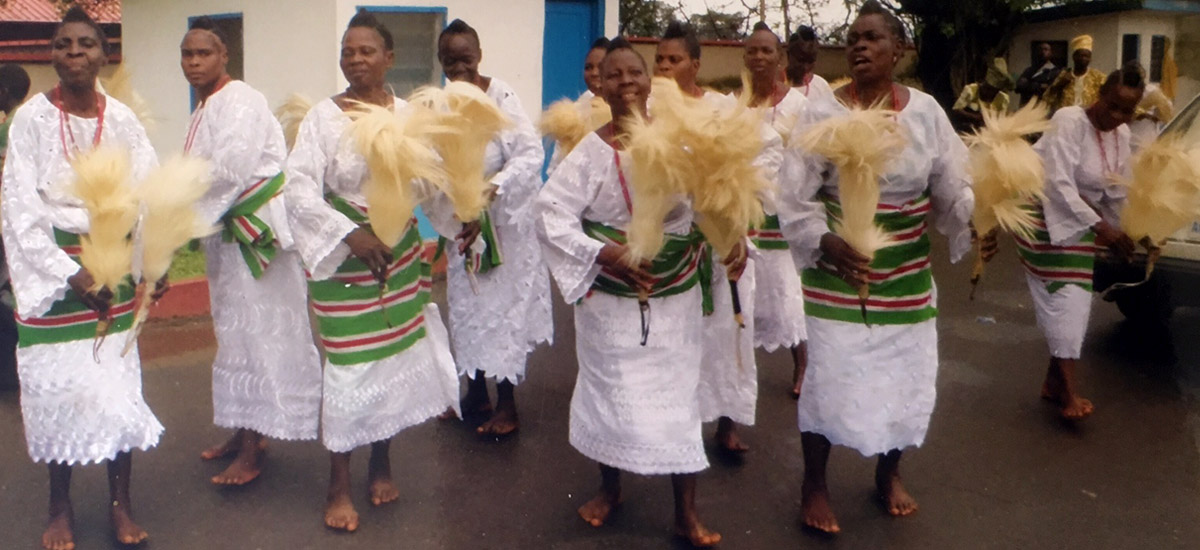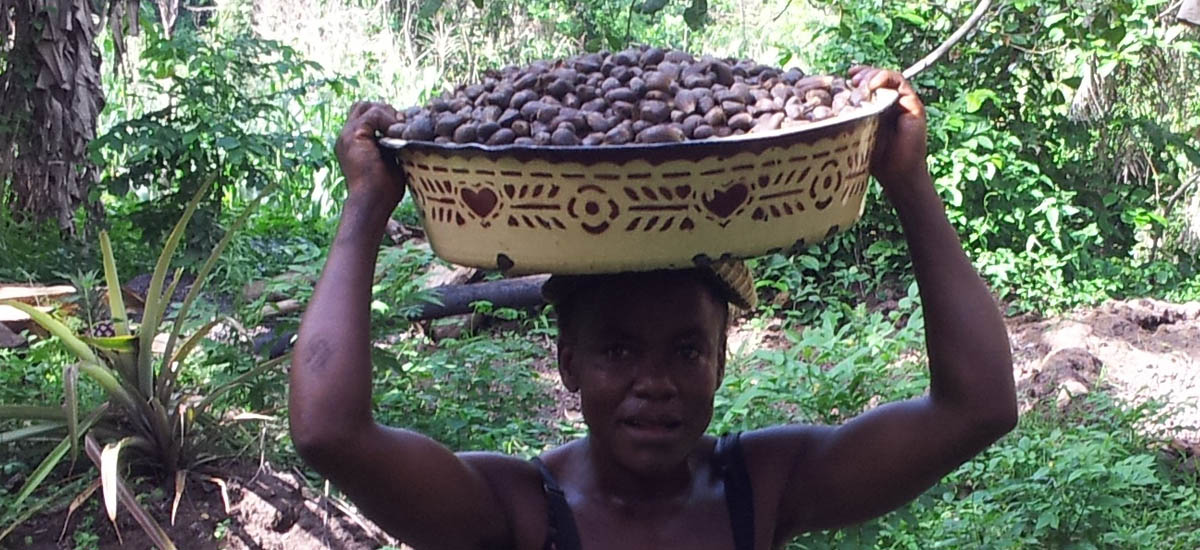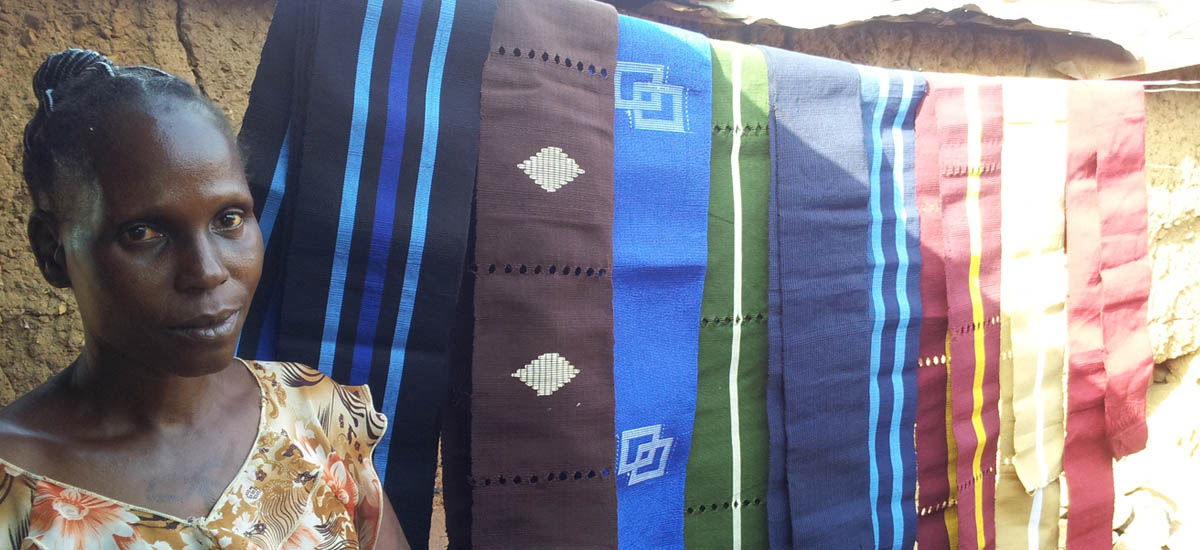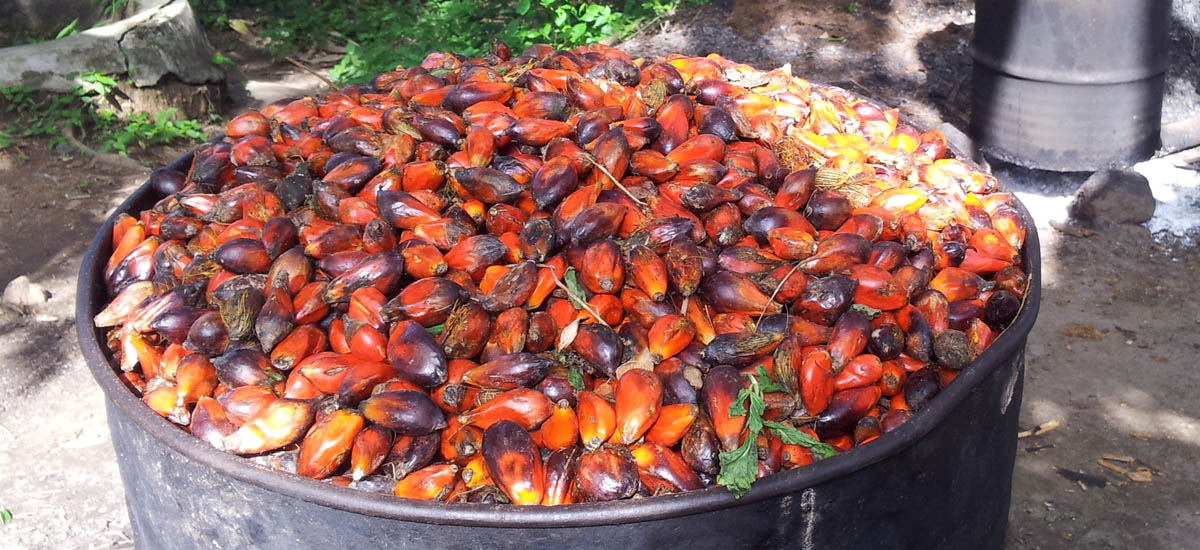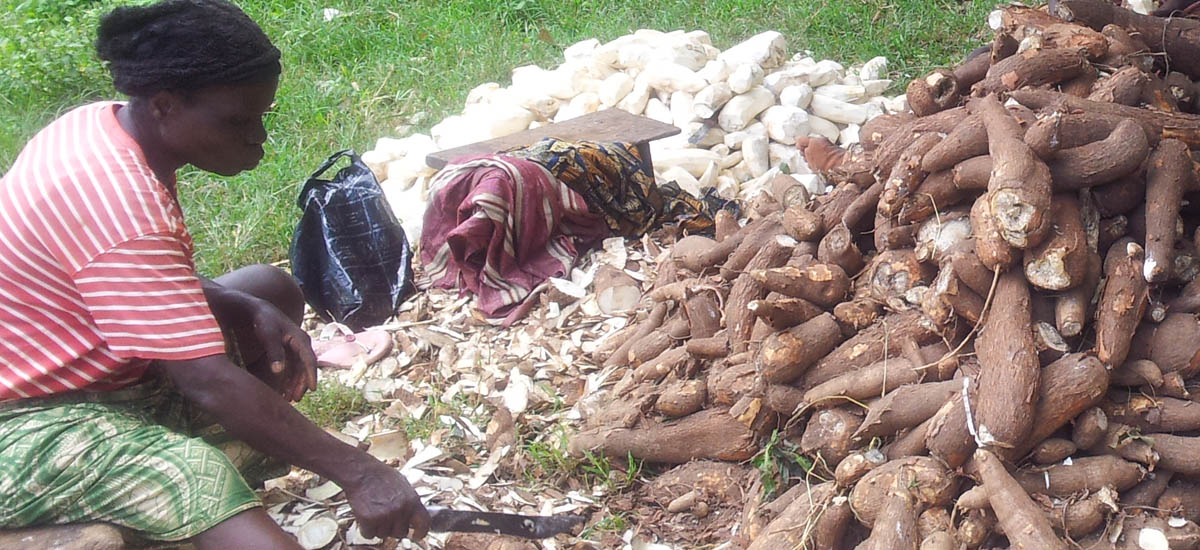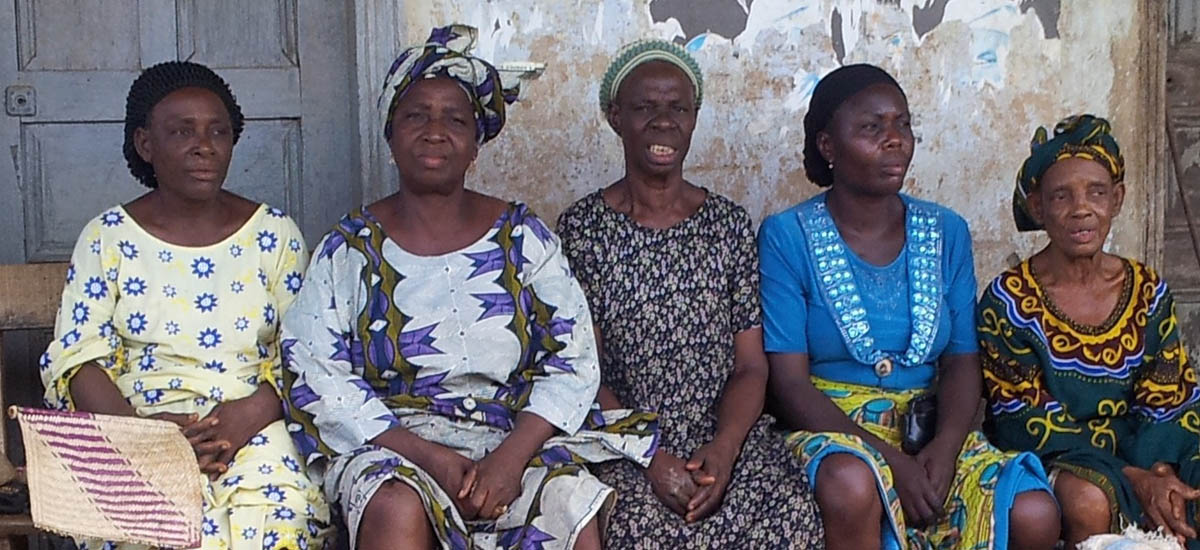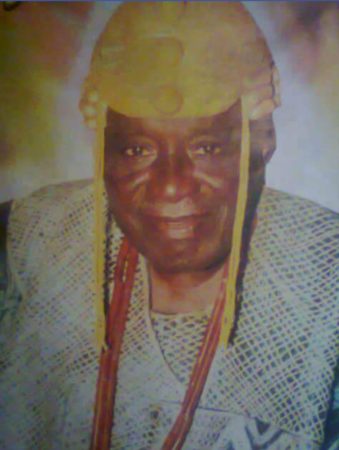Oba Osasona was the first Monarch in Mobaland to receive government salary of 12s. 6d per month. The late Osasona was a renowned herbalist and traditionalist. But because he allowed Christianity and Islam to be introduced to the town, his Chiefs, together with some people, conspired and revolted against him.
Oba Matthew Bamiteko Orimoogunje II was about eighteen year old when his father died. Since he did not have the opportunity of a formal education, he entered a three year tailoring apprenticeship under Late Chief Coker, first Baba Egbe of Emmanuel Anglican Church in 1934. On completion of his training, he traveled about working as an unskilled labourer so that he could earn money to purchase a sewing machine. The exercise took him to Esa-Oke, Ibodi and Modakeke in Osun State of Nigeria.
In 1938, Oba Orimoogunje came into contact with a Mr Matthew who was then a District Officer. Oba Orimoogunje worked for him as a gardener. By 1939 when World War II broke out, the District Officer became the local Commissioning Officer recruiting Soldiers into the Army and Oba Orimoogunje enlisted as one of the British Commonwealth Soldiers. He was among the group of soldiers that left Ikeja for the Middle East in 1943. This afforded him the opportunity to travel far and wide to places like Burma and Egypt.
According to Oba Orimoogunje, in Bengazi, Egypt, he had an encounter with a soothsayer who prophesied that he would not go far as a military man because there would be a more reputable position awaiting him in life. When he was granted leave on August 15, 1944, he visited Jerusalem, Nazareth and Jarfa. Oba Orimoogunje II visited Jerusalem again in 1945. During this visit to Jerusalem, he mailed a Holy Bible to the Anglican Church, Igogo with a passionate letter and enclosed his photograph. He got a reply to his letter at Alexandra.
On September 14, 1946, he returned to Nigeria through the Suez Canal. Three days after his arrival in Ikeja with other soldiers, he was allowed to go home. On returning home, the Oore of Otun then, Oba H. H. Oyinloye, advised him to join the Nigeria Police but he refused for personal reasons. Instead, he embarked on petty trading.
According to Igogo kingship enthronement traditional procedure, and in recognition of his exposure and activities in the town, he was called to ascend to the throne of his forefathers on September 4, 1954. His enthronement was spearheaded by the then Ejemu.
The reign of Oba Mathew Bamiteko was a bridge between the old and new generation. Like others who fought in the 2nd world war, Oba Bamiteko’s experience in the army exposed him to nationalistic ideas which he brought back home. Being relatively better informed, would represent the previous old Oba on various assignments.
During his reign, he was credited with these very noteworthy achievements:
- He spearheaded the fight against local slavery and the subservience of Igogo indigenes and other neighboring towns.
- New primary, modern and secondary schools were established and education became the ultimate desire of a people once known for cassava farming.
- He was a major player in organizing ad hoc special Igogo ‘police’ groups that stayed on the roads to farms and corralled children in order to get them enrolled in schools.
- In 1965 he disbanded Ekoorun working group of the town so that they could sent to schools.
- He cleared up shanties and heap of dung hill in the market for housing projects.
- Gutters were constructed along township roads through communal works to ease drainage after rainfall.
- Tarring of road that links the town with Otun and Oye.
- Knowing the implication for societal development, he mobilized Igogo people for the census and generation of internal revenue.
- New primary, modern and secondary schools were established and education became the ultimate desire of a people once known for cassava farming.
- A customary court was established.
- He mobilised his people to embark on the electrification project completed purely by communal effort.
- Pipe borne water was commissioned.
- Modern health centre and other health services became a reality.
- Even in his old age, he worked assiduously to get Igogo Obaship throne a higher rank.
- The beaded crown was restored to Igogo and the title of Obaloja was changed to Onigogo.
The late Onigogo of Igogo was an active participant in the clamoring for creation of the State and eventual location of the State Capital at Ado Ekiti. This was acknowledged in the book on the creation of Ekiti State.
Oba Mathew Bamiteko was seen as one of the last of the old generation of Ekiti Obas. He joined his forefathers on January 29, 2009.

